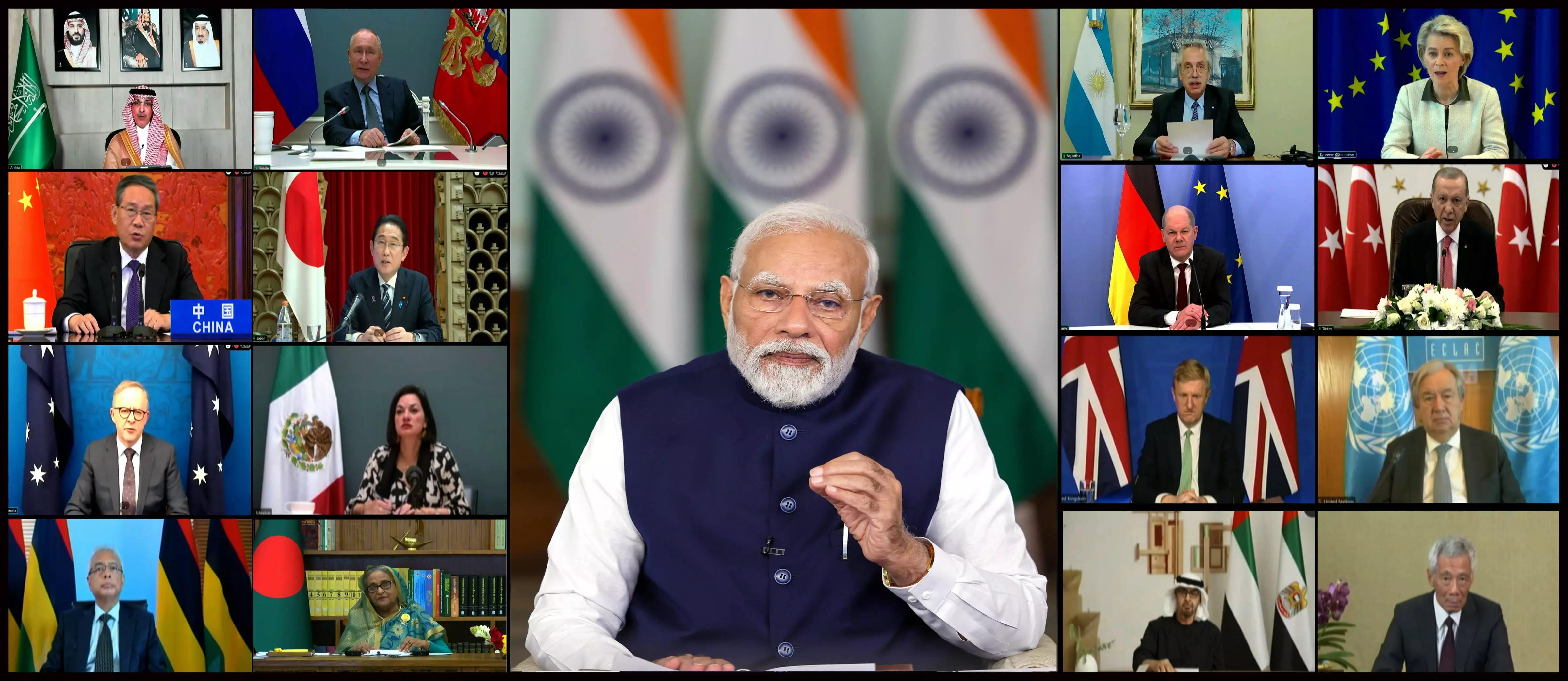
India managed consensus on Russia-Ukraine war at G20, brought in AU
While India invited nine guest countries to New Delhi, including Egypt, Nigeria and Bangladesh, it chose not to invite Ukraine despite the latter’s requests

During the G20 presidency it held amid growing global turmoil, India waded through conflicting views to bring about a consensus on the contentious issue of the Russia-Ukraine war at the New Delhi Summit.
And in a reminder of its once leadership position among developing countries, India also made the 54-nation Africa Union a permanent member of the forum of the world’s 20 largest economies.
The key points of the New Delhi Summit were extending loans to developing countries, reshaping the international debt structure, regulating crypto currency, and management of geopolitical uncertainties on food and energy security.
There was also emphasis on the need to bring about urgent reforms in multilateral banks and, specifically, lowering the debt burden of 70 low income countries besides sustainable development.
The New Delhi declaration on climate financing placed $5.9 trillion for green financing requirements of developing countries.
Ukraine war
According to Amitabh Kant, India’s Sherpa to G20, the consensus on Russia-Ukraine – which few imagined was possible – in the final agreement, belying the fears of pessimists, came after some 200 hours of non-stop negotiations, 300 bilateral meetings and 15 drafts.
The war of course continued but the Summit showed a rare semblance of unity among countries which are bitterly divided over the seemingly unending conflict.
Ahead of the September Summit, India hosted more than 200 meetings in over 50 cities.
While India invited nine guest countries to New Delhi, including Egypt, Nigeria and Bangladesh, it chose not to invite Ukraine despite the latter’s request.
But despite the talk of bringing the concerns of the Global South to the forefront, the final declaration did not even once use the term Global South – a sign of the leading Western countries’ distaste for the Third World.
Critics also said that India had deferred its G20 presidency to bring it closer to the 2024 parliamentary elections – so as to give Prime Minister Narendra Modi a major political boost.
G20 was set up in 1999 as a forum of its foreign ministers. It was upgraded to a Summit level in 2008 following the global economic crisis.
The next G20 Summit will be held by and in Brazil.

